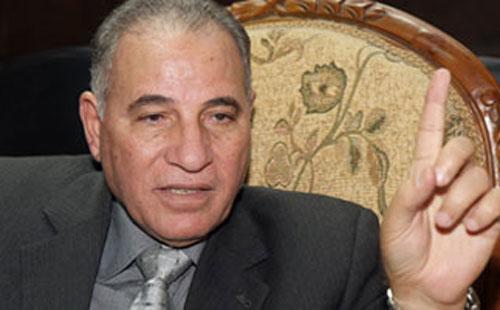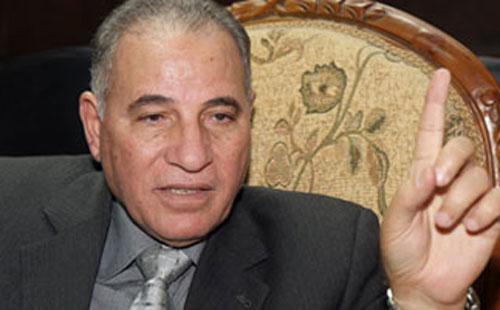Latest NEWS
- Aswat Masriya, the last word
- Roundup of Egypt's press headlines on March 15, 2017
- Roundup of Egypt's press headlines on March 14, 2017
- Former Egyptian President Hosni Mubarak to be released: lawyer
- Roundup of Egypt's press headlines on March 13, 2017
- Egypt's capital set to grow by half a million in 2017
- Egypt's wheat reserves to double with start of harvest -supply min
- Roundup of Egypt's press headlines on March 12, 2017
Removal of Egyptian justice minister stirs legal debate
CAIRO, Mar 14 (Aswat Masriya) - The recent decision to exempt Justice Minister Ahmed al-Zend from office sparked debate on whether the move was constitutional or if it bypassed parliament's functions stipulated in the constitution.
Prime Minister Sherif Ismail ordered Zend to give up his position on Sunday after he made controversial comments on television on Friday.
In a talk show on Friday, Zend said he would jail a lawbreaker regardless of who he or she is, even if it is "the prophet", referring to Islam's Prophet Muhammad.
Zend apologised but to no avail and many Egyptians took to social media to express their disapproval at the comments and even call for Zend's trial.
Undersecretary of the House of Representatives Sayed Mahmoud al-Sherif told Aswat Masriya that the former minister's removal did not require prior approval from the House.
"The parliament did not form the current government" which means that "approving the removal of one of its members" is not required by the constitution, Sherif added.
Meanwhile, Professor of the Philosophy of Law at Zagazig University and constitutional expert Mohammed Farahat said the parliament should have been consulted before deciding to exempt Zend.
"Article 147 is clear, as it gives the parliament the right to approve the cabinet as well as cast a vote of no confidence to dismiss it, and this likewise applies to any of its members," added Farahat.
Article 147 of Egypt's 2014 constitution states: "The president of the republic may exempt the government from carrying out its tasks, provided that the House of Representatives approves of such with a majority."
The article adds that the president "may conduct a cabinet reshuffle after consultation with the prime minister and the approval of the House of Representatives with an absolute majority of attendees, that is no less than one third of its members."
Constitutional expert Salah Fawzy believes the parliament's approval of a cabinet dismissal or reshuffle is conditioned on the parliament having initially reviewed the government's programme and approved it according to Article 146 of the constitution.
The government is scheduled to present its programme to the House of Representatives on Mar. 27, 2016. Article 146 states that the president tasks a prime minister with forming a government, which has 30 days to win the confidence of the majority of House members with its programme.
Fawzy added that the current government was appointed by the president in his capacity as a legislator in the absence of parliament, and the president retains the right to dismiss any of its members or the entire cabinet without referring back to the parliament.
Zend was appointed as Justice Minister in May 2015 after his predecessor Mahfouz Saber submitted his resignation, also after making controversial comments on television. Asked whether the children of garbage collectors can become judges, Saber said, judges should grow up in and come "from an appropriate" circle, "with all due respect to garbage collectors," sparking uproar of many who found his comments reflecting classism.
Formerly head of the Judges Club, Zend came off as a strong opponent of the Muslim Brotherhood during his term. His most memorable confrontations with the now-banned group were during the tenure of former president Mohamed Mursi, who was militarily ousted in July 2013 after mass protests against his rule.
He is also known for strongly advocating the controversial notion of appointing the sons of judges in the judiciary.
Zend has previously made controversial statements and became embroiled in many public feuds, most recent of which is his war of words with Hisham Geneina, head of the Central Auditing Organisation.















